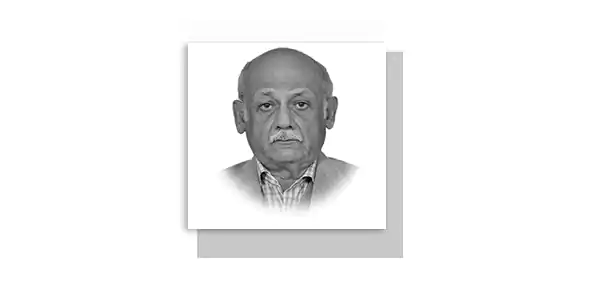THE political soap opera being enacted in Pakistan continues unabated. The powers that be in the country are hell bent on trying the civilian political activists and agitators of May 9 in military courts. The desire of the Federal Govt. has ignited a fierce debate in the country about the trial of civilians in military courts. In a recent statement the UN High Commissioner for Human rights has expressed his reservations believing that the arrests may mean arbitrary detentions under international law, and the post arrest treatment may include acts of custodial torture, prohibited under the convention against Torture and other Cruel, Inhuman or degrading treatment or Punishment. Pakistan is once again under the microscope of the international media, jurists and legal experts and activists.
Amnesty International has also expressed its opposition to this idea. AI believes that trying civilians in military courts is against international Human Rights Law (IHRL) violating the right to a fair trial guaranteed under section 14 of the international Covenant on Civil and Political Rights (ICCPR) which guarantees the right to a free trial before a “Competent, independent, and impartial tribunal established by law” Pakistan is also bound by International Humanitarian Law (IHL) In comparison to IHRL, rights guaranteed under IHL are narrower, with framework allowing for the trial of offenders before military tribunals, the application of IHL, however, is only triggered if an armed conflict exists in the form of either an international armed conflict (NIAC) within a state. Neither circumstance describes the political turmoil in Pakistan today precluding the application of IHL.
Military courts are meant to dispense justice for crimes committed during an armed conflict, whether IAC or NIAC. These crimes involve grave breaches of law of war crimes, crimes against humanity, and genocide. Presently the Supreme Court has adjourned the hearing of the petitions challenging the trials of civilians in military courts, the legal wing of the army however is in the process of completing formalities before formal proceedings against the 102 suspects in military custody can begin. The army’s legal department has gathered evidence against those in custody and is still building its case against those who are still at large. THE CJP has expressed his wish that the army will not start legal proceedings against those in custody until the Supreme Court had disposed of the petitions against the military trial of civilians pending before the bench led by the Chief Justice of Pakistan.
Immediately after the expression of the hope by the CJP the DG ISPR confirmed that all the 102 suspects will be tried under section 3,7, and 9 of the official secrets act read with Section 2(1)(d) of the Pakistan Army Act. According to Ahmed Bilal Soofi an eminent legal expert in order to legitimize the trials the Judge Advocate General (JAG) branch of the army has to fulfil certain requirements. Military sources have claimed that the accused of the May 9 events not only trespassed into prohibited areas, but also damaged and looted military property in addition to desecrating monuments in honor of the shaheed national heroes. They claim that these violations of the law made these accused liable to be tried under the Official Secrets Act and consequently the Army Act of Pakistan.
Section 2(1) of the army act states “ Persons not otherwise subject to this Act who are accused of seducing or attempting to seduce any person subject to this Act from his duty or allegiance to government, or having committed, in relation to any work of defense, arsenal, naval, military or air force establishment or station, ship or aircraft or otherwise in relation to naval, military or air force affairs of Pakistan can be tried under the secrets act” Ironically the Official Secrets Act of 1923 actually empowers the military to try civilians under the army
Act. Human rights groups in Pakistan and abroad however insist that under previous military regimes and even under elected Govt. military courts have been used to silence opponent’s voices and that several organizations are unanimous in calling that these cases should be tried in established courts of the country. According to a former judge of the Islamabad High Court civilians had never been tried for breaching official secrets in an established court but some legal experts claim that civilian courts had never tried cases under this law, as such matters have been the exclusive domain of military courts in the past.
According to the DG ISPR the Army Act has been a part of the legal framework for several decades, and hundreds of cases have been decided under this law. This is very true. Under the previous Govt. of the PTI 25 civilians faced court martial for violating the secrets act. These trials were not seen as transparent and fair by any legal experts and violated a good number of the fundamental rights of accused. These trials conducted in great secrecy and three of the accused were awarded death sentence and according to legal expert Advocate Rahim articles 4, 9, 10 and 10 A of the constitution were violated as neither their counsel nor families were intimated about the suspects arrest and trial.
—The writer is Professor of History, based in Islamabad.
Email: [email protected]










